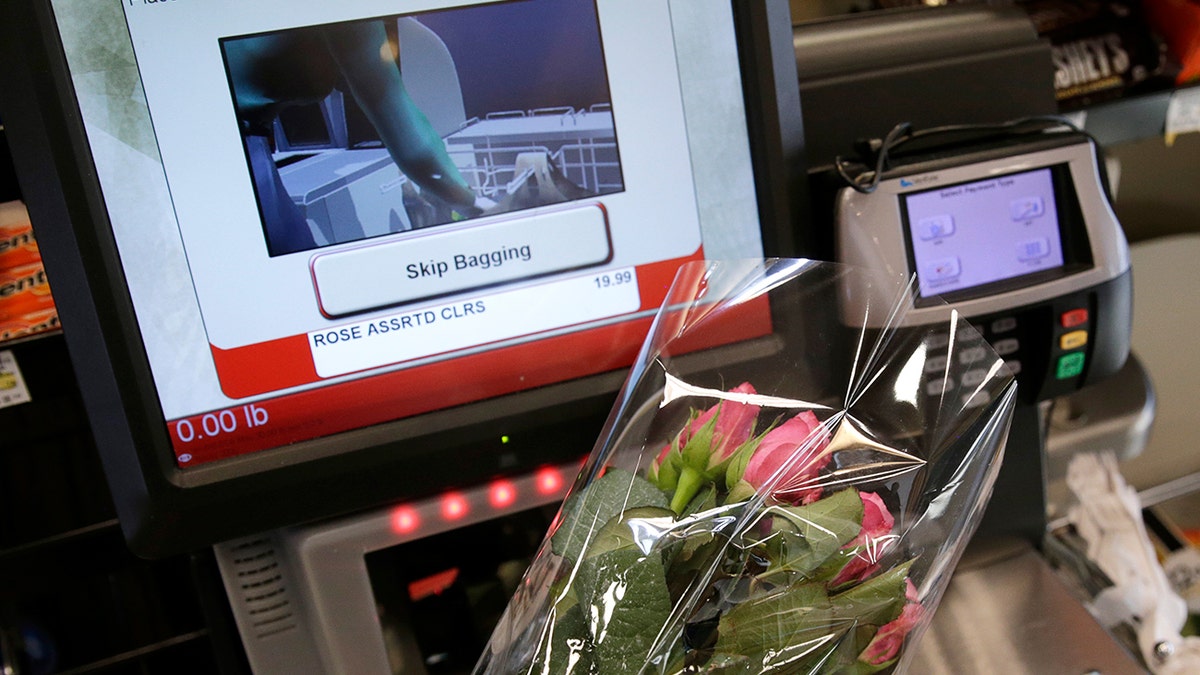
Flowers are scanned at a self check out station. (REUTERS/Gary Cameron)
A very simple thought occurred to me while I was scanning my own merchandise and swiping my own credit card while checking out at a Home Depot in Massachusetts this past weekend: Why does everyone seem to be okay with this?
There was no human being getting paid to ring up and bag my merchandise. Nor was there a worker at several other checkout lines. And no one was raising any red flags about the fact that machines had obviously put people out of work.
I had a similar experience at a CVS recently.
Why does our culture seem to applaud every technological advance uncritically, without considering its impact on the employment of human beings? Sure, it will be cool and convenient when Amazon starts delivering packages by drone, within 30 minutes, but it will also put many delivery personnel and, perhaps, postal workers out of work.
I have the same nagging question about self-driving vehicles, which everyone seems to be waiting for with bated breath. How many jobs will remain for taxi drivers and Uber drivers and traffic cops?
There now are “dark factories” that manufacture products without needing people to put them together or package them. The factories can run without lights, because no human being is inside.
Why does our culture seem to applaud every technological advance uncritically, without considering its impact on the employment of human beings.
Sure, people are employed to create the technology and build the machines and factories that operate automatically to churn out product. But whole buildings will soon be snap-together affairs created largely through 3-D printing. And there are lots of folks in America who aren’t trained or can’t be trained to participate in designing and implementing new technologies of that order. Millions are tradesmen and craftsmen and service people.
They are among President Trump’s “forgotten people.”
Silicon Valley inventors and entrepreneurs are very quick not only to defend their version of human rights, but also to make a buck without regard to whether their products erode human self-worth, autonomy and the ability to make a living.
It would seem wise for companies like Home Depot and CVS and Amazon to consider the impact of mechanization on their workers, not just their bottom lines. And because companies may be too self-serving in that regard, it might be wise for consumers to mount some opposition to the ones that decide machines are better at doing jobs than people are.
There are lots of folks who won’t buy meat because they decry the slaughter of animals. There are lots of folks who won’t buy from companies because their politics aren’t aligned. Why aren’t more people unwilling to buy from companies that are racing to deploy machines that put them out of work?
I think it’s because technology is inherently fascinating. It has the pull of an addictive drug on the psyches of human beings. We want more and more and more of it, without thinking very much about whether we are improved by it.
We humans don’t want to turn out to have been “too clever by half,” inventing things that ultimately dispirit and defeat us.
The government would be wise to engage in a new and comprehensive actuarial (and psychological) assessment of the impact of mechanization on every sector of the workforce, to determine whether rampant unemployment is likely.
Here’s a potential Trump tweet:
CVS putting workers out of work with self-scanning checkout! U.S. needs more jobs, not more gadgets!
